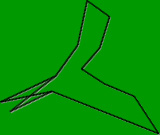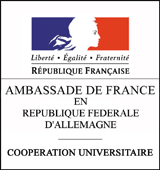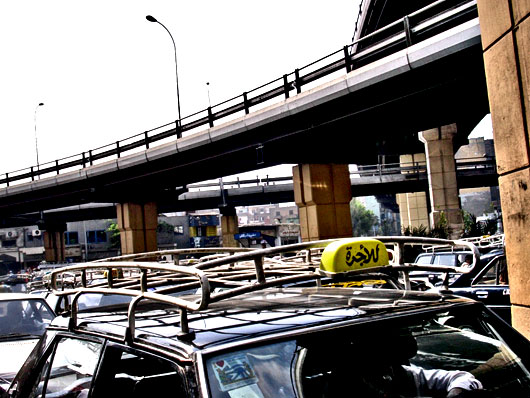 |
Programme principles of the European Research Project EAD and postgraduate Master’s Degree Programme of European Architecture (first period till 2012: Architektur.Studium.Generale) |
||
.EAD | Reiseuni - Charter |
|||
7 Points of the Reiseuni Charter1 Transformation of the European cityChanges in contemporary lifestyle and working life are manifested in the transformation and reorganization of the European city at the beginning of the 21st century. Current design problems are to be resolved in an historic cultural setting and in the context of complex, pre-existing structures. Transformation occurs at all scales and across multiple disciplines: measures to increase density, transform function, make additions and insertions, as well as to restructure, to re-use and to redefine the existing buildings and urban quarters, must be developed with respect to ecological sustainability. Multi-dimensional design and planning processes and participatory communication strategies are integral parts of the democratic planning and building of culture. 2 Dialogue and research in architectureThe study programme European Architecture (former Architektur.Studium.Generale) is an international course of study implemented in cooperation with eight partner institutions of higher education. The intention of the new programme is to renew generalist architectural education in the context of European culture and to refocus on the role of the university as a place for innovation and research – in order to assume social responsibility, to recognize the university as a place for visionary thinking, and to establish a forum for a European architectural dialogue. The practical objective is to run an institutionalized platform, where a joint programme, a research platform and a network of universities & non-university institutions address contemporary issues in architecture. The universities provide a place for independent discourse and debate through profound analysis, for the development of alternative solutions for urban life and regional planning issues, as well as for experimentation with process-oriented scenarios and positions. A wealth of experience from interdisciplinary practitioners permits the exchange between the institutes of higher education. 3 A model for architectural educationThis project can be considered as a comprehensive model for architectural education, where new approaches to issues of practical experience, internationality, mobility, interdisciplinary collaboration and communication, as well as the emphasis on attendant research are tested in practice. Topics of contemporary interest will be intensively studied, discussed, and analysed, utilizing the resources of interdisciplinary theory, practical reflection and didactic strategies. The project is intended to be an inspiration for the master’s degree programmes in architecture, urban design and structural engineering at the partner universities, and should serve as a model, a field for experiment, and a research laboratory for architecture in general. Heterogeneous teamwork experience for student work as well as team-teaching will be reviewed and analysed in the accompanying fields of reflection. Both, work at site and on different digital platforms, creating connections across national boundaries, will prompt the development of appropriate teaching models and communication tools. Students will be challenged with a broad variety of urban issues and different architectural methodologies during their education at different locations across broader Europe. The studies convey and delve into scientific methods, practice-related technical knowledge and skills for the scope of architectural tasks in the European cultural sphere, as well as language, presentation and communication skills. 4 Graduation and objectives for an international career as team generalistThe education offers high-calibre graduates who posses at least a bachelor’s degree in architecture or related disciplines the opportunity to complete a two-year Master’s programme in architecture, at higher education institutions in the European-influenced region between Portugal, Spain, Austria, Estonia, Finland, Israel and Germany. Upon successful completion of the Master’s programme, the academic double degree “Master of Science” (M. Sc.) in Tallinn and the Master in Architecture of UAL Lisbon (with beginning in 2015) is conferred. For the graduates of the study programme, the education creates the foundation for assuming architectural tasks with an awareness of local and country-specific building culture and urban development. The studies combine an artistic and academic education that prepares the students for an international career path in responsible positions in the production and politics of architecture and urban development. After completing their studies, the graduates are capable of independently designing, planning and implementing building tasks in different cultural and economic contexts, as well as developing, communicating or representing architectural and urban concepts or planning processes in international work contexts. 5 Interdisciplinary strategy and methodological diversityToday, ambitious architectural projects are generated in interdisciplinary working teams. From the beginning architecture integrates various contents and methods, combining contemporary and traditional knowledge in technology, art and culture. Still to this day, architects work in dialogue with engineers, planners, craftsmen, intellectuals and scientists. As team generalists, architects increasingly require – in addition to multiple technical and scientific competences in their own discipline – an understanding of group processes and communication dynamics, for success in their complex vocation. The faculty and student body are composed of individuals from all relevant fields of architecture or related disciplines such as urban design, landscape architecture, urban and regional planning, civil and structural engineering, art or comparable degrees. 6 Intercultural dialogue and hands-on practiceTraditionally, artists and architects travel to fulfil the professional demand for cultural education. Nowadays, architectural excursions, summer university programmes and international workshops are an integral part of architectural training. Diverse building cultures are studied on location, assignments developed in different urban contexts and in exchange with local stakeholders. Intercultural dialogue will take place between disciplines and individuals, across regional and national boundaries, languages and cultures. The master’s programme European Architecture combines the idea of the classic educational journey abroad with the intensive, interdisciplinary and project-oriented architecture workshop of university practice. The training is structured around a series of eight projects focusing on topics reflecting the cultural and spatial connections across greater Europe. The intensity gained by focusing exclusively on one complex assignment is the key to a hands-on, pragmatic educational experience. Urban planning, architectural, structural and artistic issues will be examined in all scales and in international teams. Students work together with local experts and professors on assignments relevant to the region, and are challenged with a high degree of new information, knowledge and experience. 7 Knowledge network, Internationality and mobilityThe Reiseuni_lab utilizes the on-going transformation of the European system of higher education “after Bologna“ to establish an exchange of knowledge between cities and institutions in a formal cooperation between universities, schools of fine art, non-academic institutions, university faculties and postgraduate students. The selection of participants is international and intercultural: Universities and institutions of Germany, Austria, Estonia, Portugal, Finland, Spain, France, Poland and Israel joined the cooperation since 2009. The partnerships are open to develop architectural knowledge or to exchange different approaches in mutual agreement, in order to give interested universities the possibility to experiment the network’s expertise. Each partner country engages one or two professors and might send three students. The class of 18-25 students is taught at the European universities, travelling together from one city and institution to the next. Institutions based in Berlin, such as the Academy of the Arts, form together with external experts and the partner universities – under the roof of one Mother University – an interdisciplinary platform. The Reiseuni_lab enables a lively forum for knowledge transfer: next to the master’s programme cooperation, the Partner network operates through annual conferences, exhibitions and publications, which support the continuous dialogue and exchange of research results. [Dagmar Jäger, 2008 | signed by members of the Reiseuni_lab in 2010 | edited version 2015]
|
|||

|
|||

